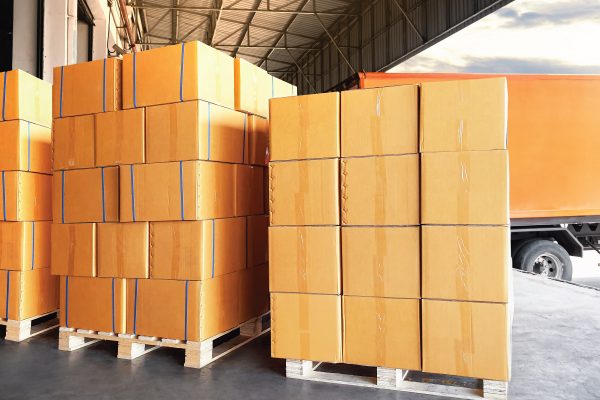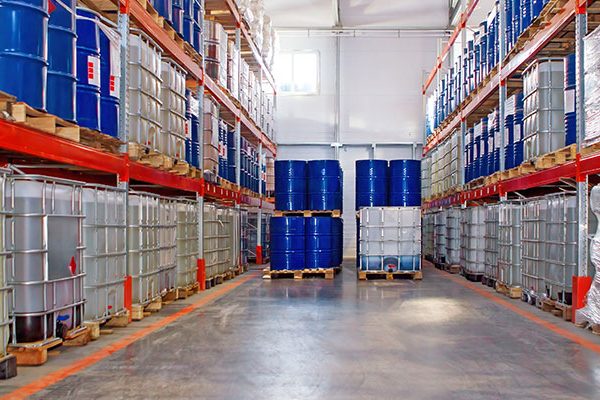Green logistics refers to the set of sustainable policies and measures aimed at reducing the environmental impact caused by the activities of this business area. This logistics concept affects the configuration of processes, structures and systems or equipment in the transport, distribution and storage of goods. The traditional approach to logistics often leaves environmental sustainability on the sidelines during decision-making. On the other hand, the aim of green logistics is to find a balance between ecology and economy, which has become a driving factor for industry leaders like Allcargo Group to integrate sustainability in their operations.

Green transportation revolves around efficient and effective use of resources, modification of the transport structure and making healthier travel choices. For this to bear any fruit, it requires dedicated public awareness and participation, management of privately owned vehicles and innovation and production of vehicles that utilize renewable sources of energy such as wind, solar, biofuels and hydroelectricity.
Green transportation and logistics
Today, the logistics industry is not known for its high degree of sustainability. Companies face significant obstacles in implementing environmental policies in the field of logistics. While there may be several reasons for this, responsible corporate citizens like Allcargo Group continue to take a stand and make a difference.
Dependence on fossil fuels, especially in transport:
Effective, economically viable solutions have yet to be found to wean the sector’s fuel reliance in goods transport. With a Centre of Excellence in data science and analytics, Allcargo Group is optimizing its physical and digital networks, as well as routing schedules and asset utilization to minimize the impact on the environment.
Last Mile Deliveries’ impact on urban traffic:
In particular, e-commerce deliveries have greatly increased the volume of delivery vehicles in large cities, and many operate without carrying full loads when faced with mixed orders. In days to come, this type of deliveries will become the preferred choice for all customers, especially in the e-commerce world. Use of Electric Vehicles (EVs) for deliveries, similar to how Gati, part of Allcargo Group, is implementing for some of its top customers, is one way to mitigate this problem.
Lack of infrastructure:
Local authorities are in the process of regulating emission limits. However, a cross-vertical agreement is needed to put measures in place to build new facilities that meet the wants of those involved in logistics activities. Sustainability measures like rainwater harvesting, natural or solar-powered lighting, wastewater management, etc. can be integrated at the construction stage itself.
Need for investments:
Whether logistics operations are carried out in-house or outsourced, the tight rates and margins involved are not always favourable for encouraging investments in infrastructure, process automation or more efficient handling equipment. Various agencies deliberate on all the requirements, but when it comes to paying extra higher costs, or investing into hi-tech requirements keeping sustainability in mind, this does not come around and decisions in this regard often get postponed. What sets apart environmentally conscious corporates like Allcargo Group is their strategic approach to ESG, backed by a commitment to take well-structured action and allocate the requisite resources to achieve their sustainability goals.
The invisibility of logistics to consumers:
Generally, logistics isn’t sustainable because neither is the customer. An additional problem exists, i.e., for the customer, logistics is invisible and increasingly so. It is difficult to apply green logistics policies when the customer demands, for example, 24-hour deliveries that prevent consolidation of loads or maximizing the potential transport flows. Moreover, logistical costs are often not itemized in an invoice or are negligible. This diminishes their relevance for the customers. In such a situation, what matters most is to create awareness through effective communication. Some logistics companies like Nordicon, a part of Allcargo Group’s global subsidiary, ECU Worldwide, have implemented an innovative solution. While booking a shipment on the company’s digital platform, customers can see the amount of emissions that the cargo movement will generate. With access to this information, they can plan shipments in a manner that’s effective and minimizes emissions.
Globally, and in India, the push towards green logistics and supply chain management, formulating and implementing various bills, plans, and strategies, and strengthening the implementation of green economic development strategy continues. The range of this impetus extends to remanufacturing, reverse logistics, closed-loop supply chain, and also concepts like low-carbon, net-zero transitions, etc.
About the author
V.Raju is a logistics and supply chain veteran who is currently the Senior Vice President – CL -Chemical, Pharma & Food Sector, at the contract logistics division of Allcargo Group.












